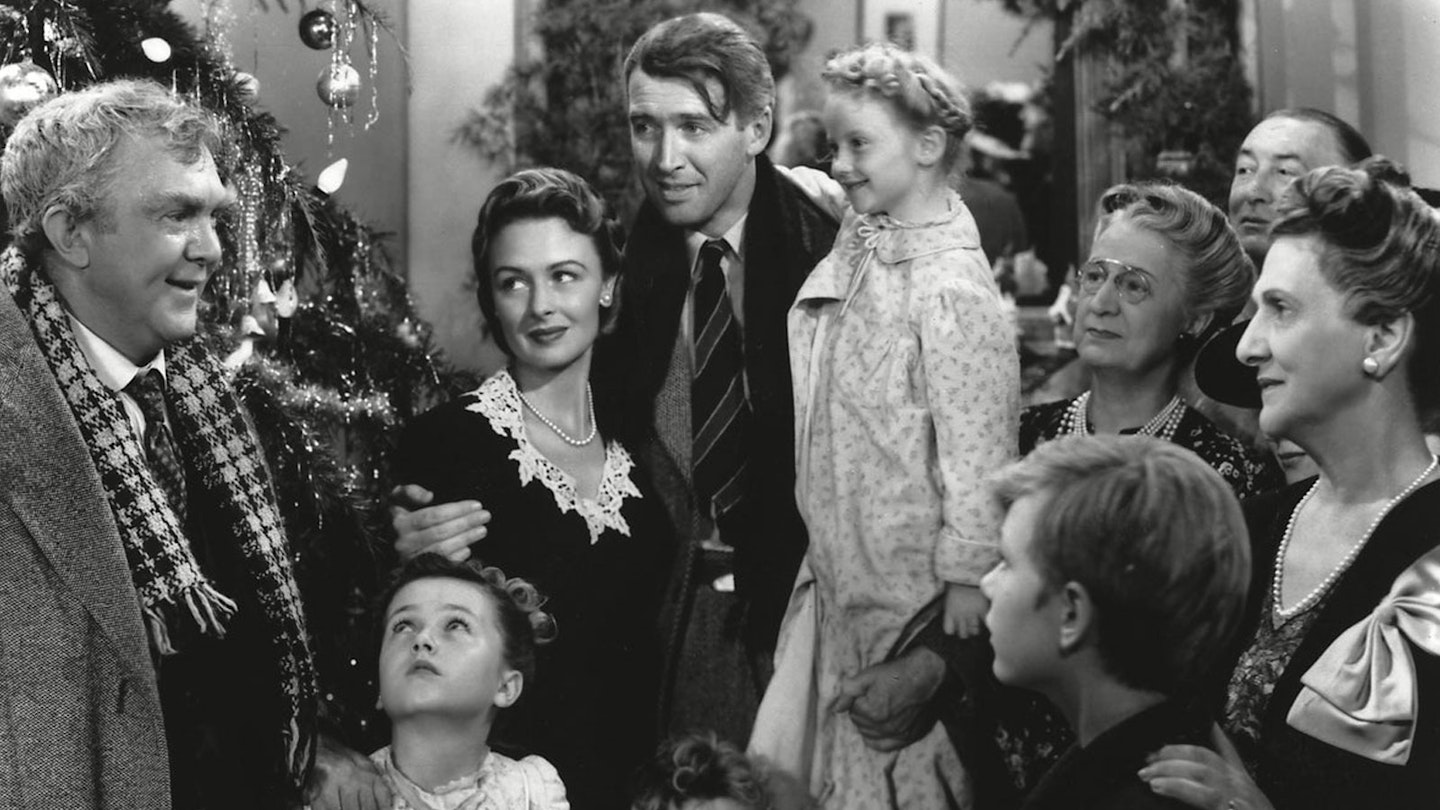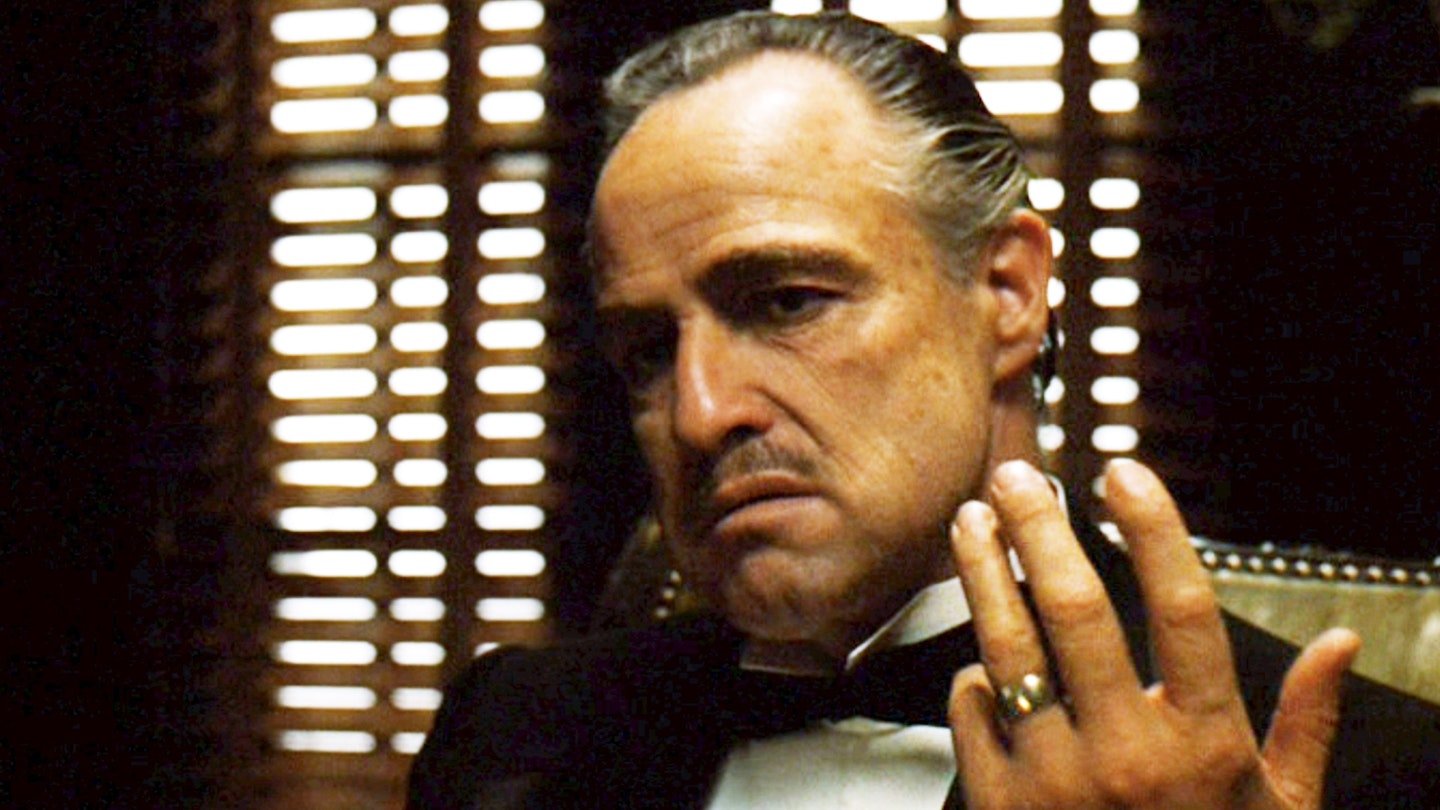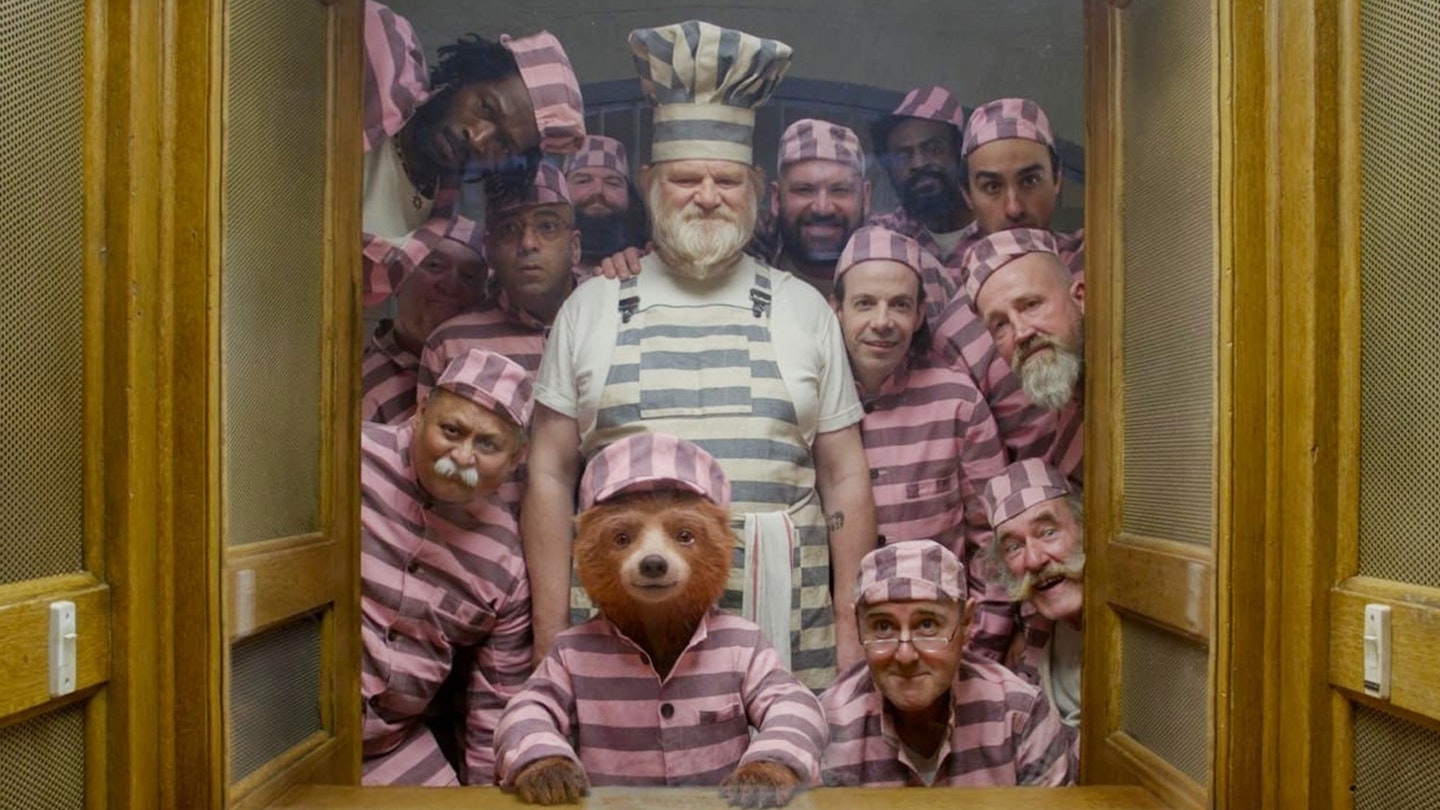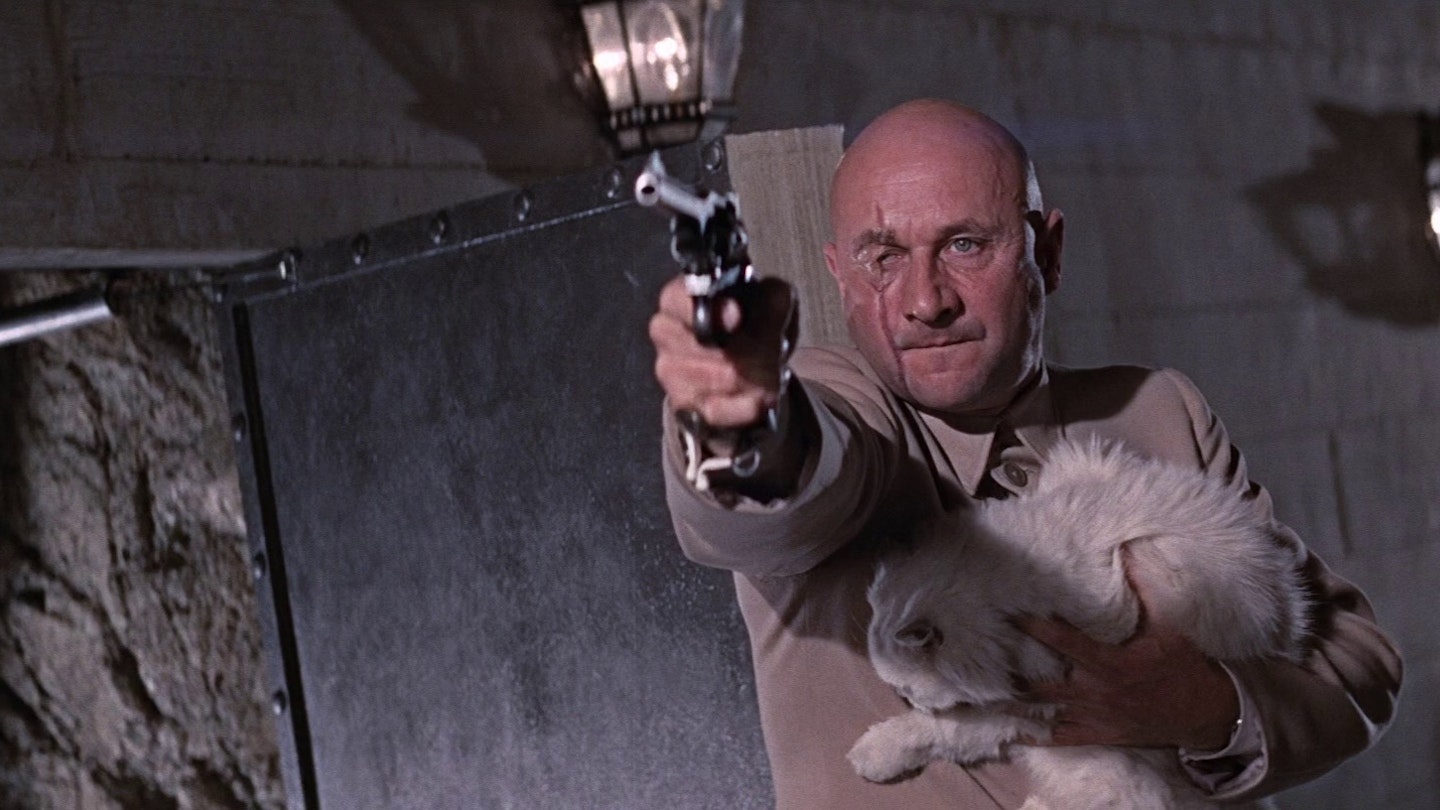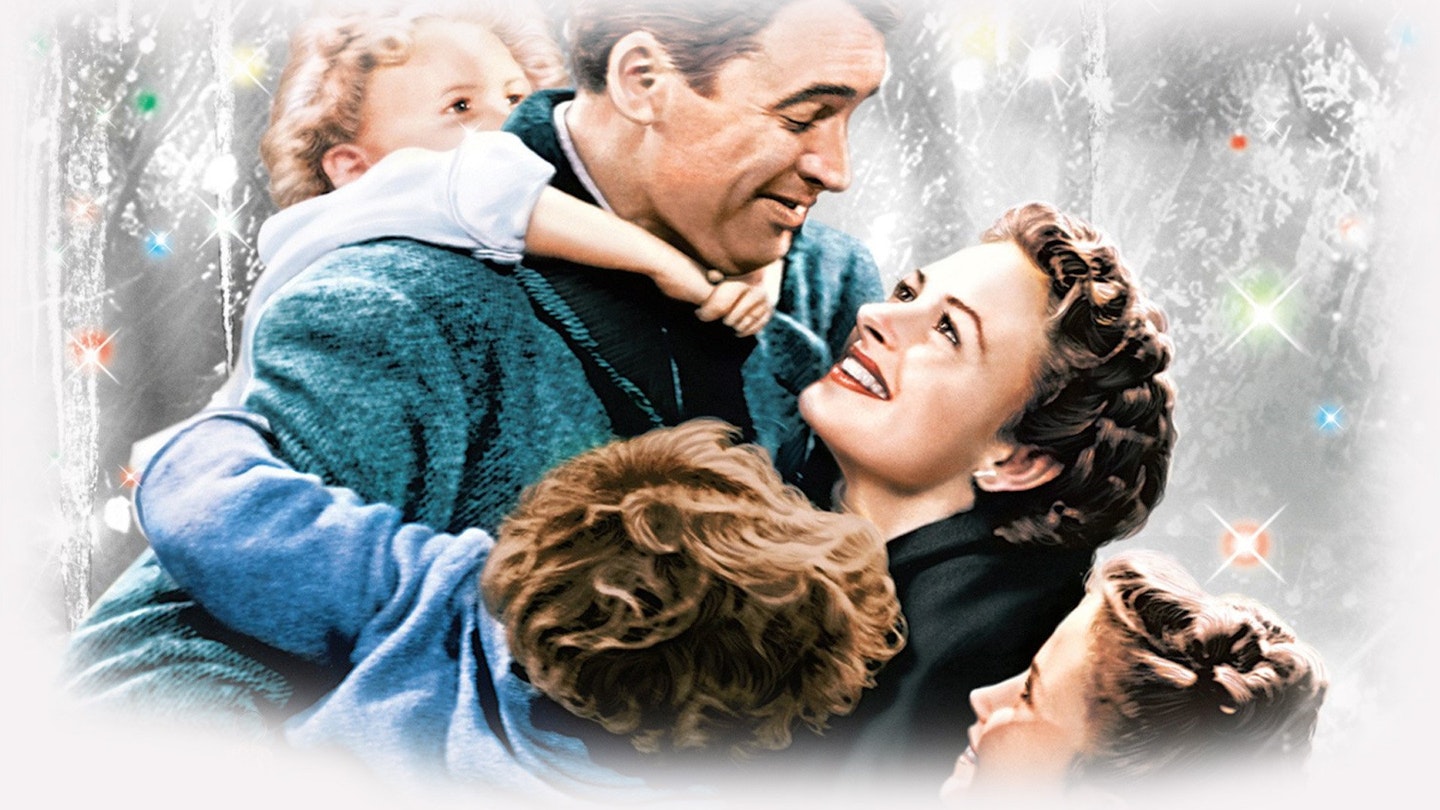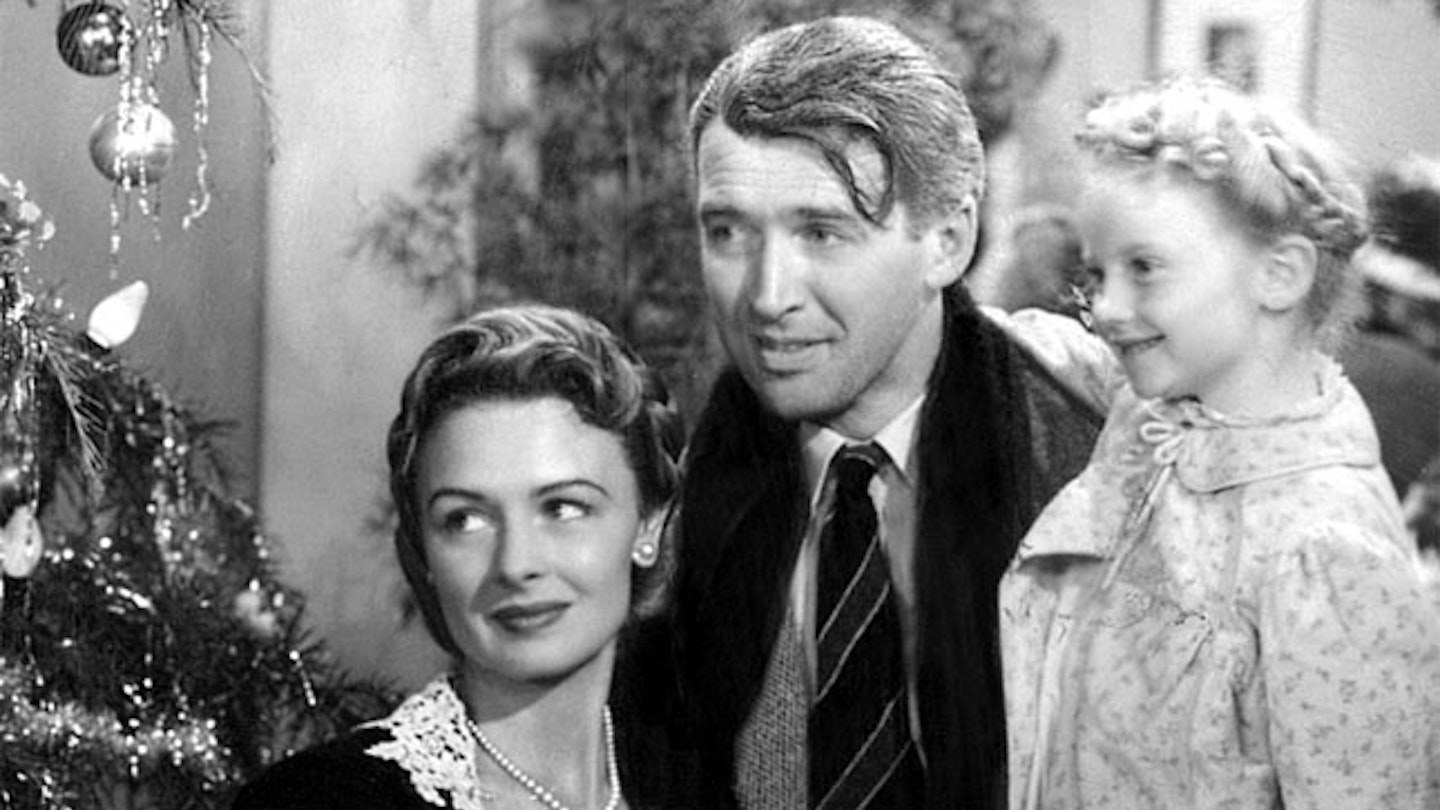Up in heaven, a chorus of prayers for help are heard coming from the small town of Bedford Falls. So a despairing man named George Bailey is prevented from committing suicide by the intervention of a funny little old fellow named Clarence Oddbody, "Angel, Second-Class". The angel shows him what others' lives would have been like, and what their town would have been like, if, as he wished, he had never been born. George has an epiphany, cries, "I want to live again!" and is restored to his family and friends who toast him as "the richest man in town". And a tinkling bell on the Baileys' Christmas tree tells George that Clarence's successful mission has won him his wings...
If there's one film synonymous with Christmas, it's Frank Capra's 1946 fantasy drama It's A Wonderful Life. Yet its top seasonal status is hardly the result of any instant success. The ultimate cult comeback movie, it was coolly received upon its release and lost more than $500,000, then was all but forgotten for more than 20 years. But after repeated TV showings during the Christmases of the '70s, it rocketed to the top of the list of favourite family viewing and is still paid affectionate homage throughout popular culture, from recurring references in other movies, to Sesame Street Muppets named after Bert the cop and Ernie the cabbie, to both a band and literary website named Zuzu's Petals. That it should be the best-loved of Christmas fables is a story as full of ironies as the picture itself. But it is endearingly appropriate, since the idea for the film came from a Christmas card — of sorts.
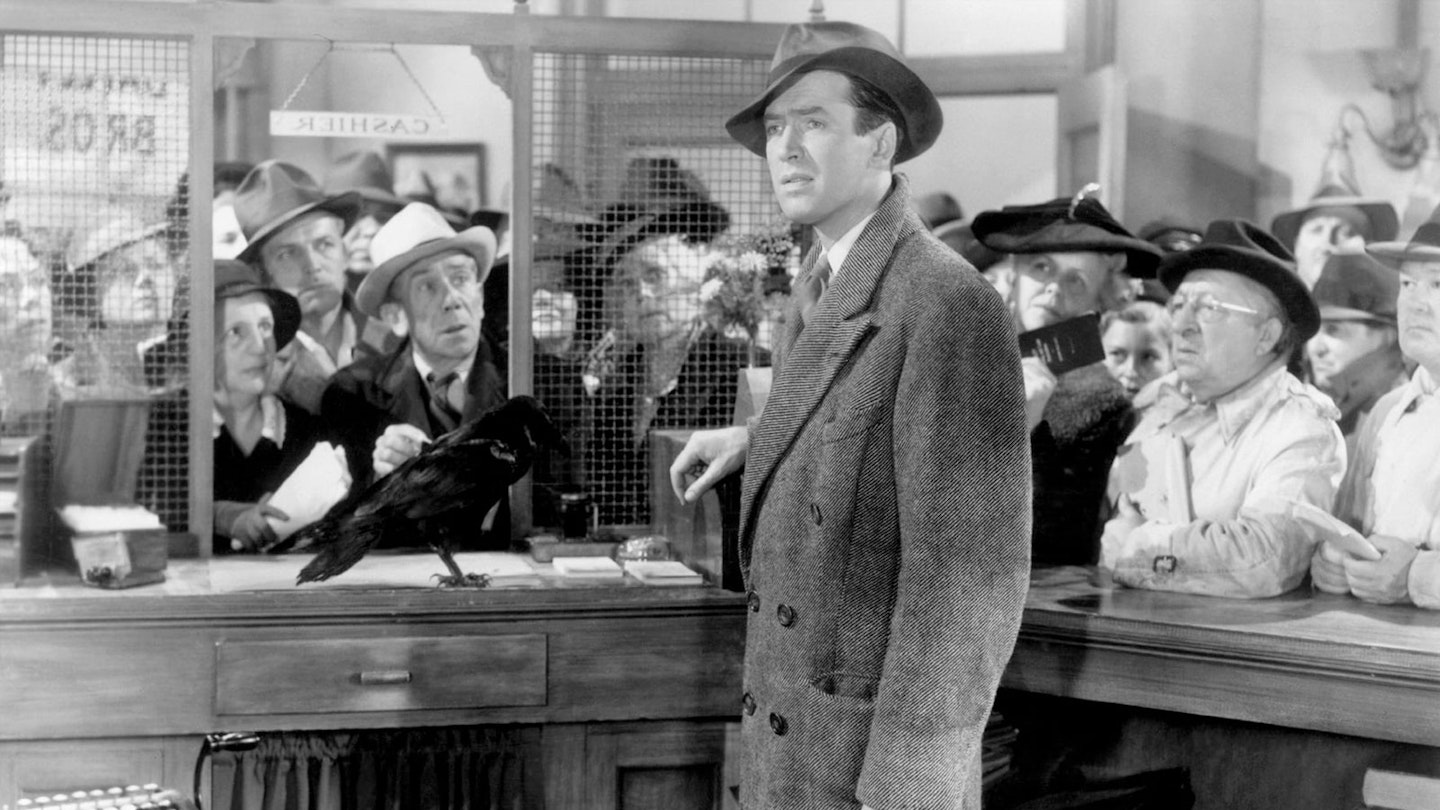
Historian and novelist Philip Van Doren Stern was in a contemplative mood one morning while shaving, and was struck with the idea for a story about a suicidal man confronted by his guardian angel, who shows him the difference he's made to people's lives. After having it rejected by several magazines, he added the seasonal setting, printed 200 copies as 24-page booklets titled The Greatest Gift, and sent them as Christmas 'cards'. One recipient was his agent, who sent it to the studios. At Cary Grant's urging, RKO bought the film rights and hired Dalton Trumbo to adapt it. Trumbo, never credited, became the first of nine screenwriters who contributed. His script was supposedly too political, too dark and too sophisticated, but it was he who wrote the immortal line: "Every time a bell rings, an angel gets its wings."
A supremely entertaining homily on simple goodness.
Meanwhile, Capra was vainly trying to re-establish himself as a major player in Hollywood. The first studio director to claim the accolade of having his name come first in the credits — hence calling his autobiography The Name Above The Title — and the winner of three directing Oscars, Capra had a string of hits throughout the '30s. We've come to know his comedy-dramas of Ordinary Joes versus The System as defining a style and tone so recognisable it's been adjectivised into 'Capra-esque'. His inimitable trilogy of satirical social-conscience comedies — Mr. Deeds Goes To Town (1936), Mr. Smith Goes To Washington (1939) and Meet John Doe (1941) – established the warm mythos which idealises small-town values, scorns big-city cynicism and celebrates the goodness of common people.
The pictures all affirm democracy while expressing disillusionment with its failings, raising up messianic innocents to denounce the corruption of politicians, journalists and lawyers (Mr. Deeds says of one attorney, "Even his hands are oily"). Deeds and Smith were hits. The bleaker Doe was not. And with the world at war, Capra decided to set aside social criticism for the uncontroversial patriotism of his Why We Fight series for the US Army.
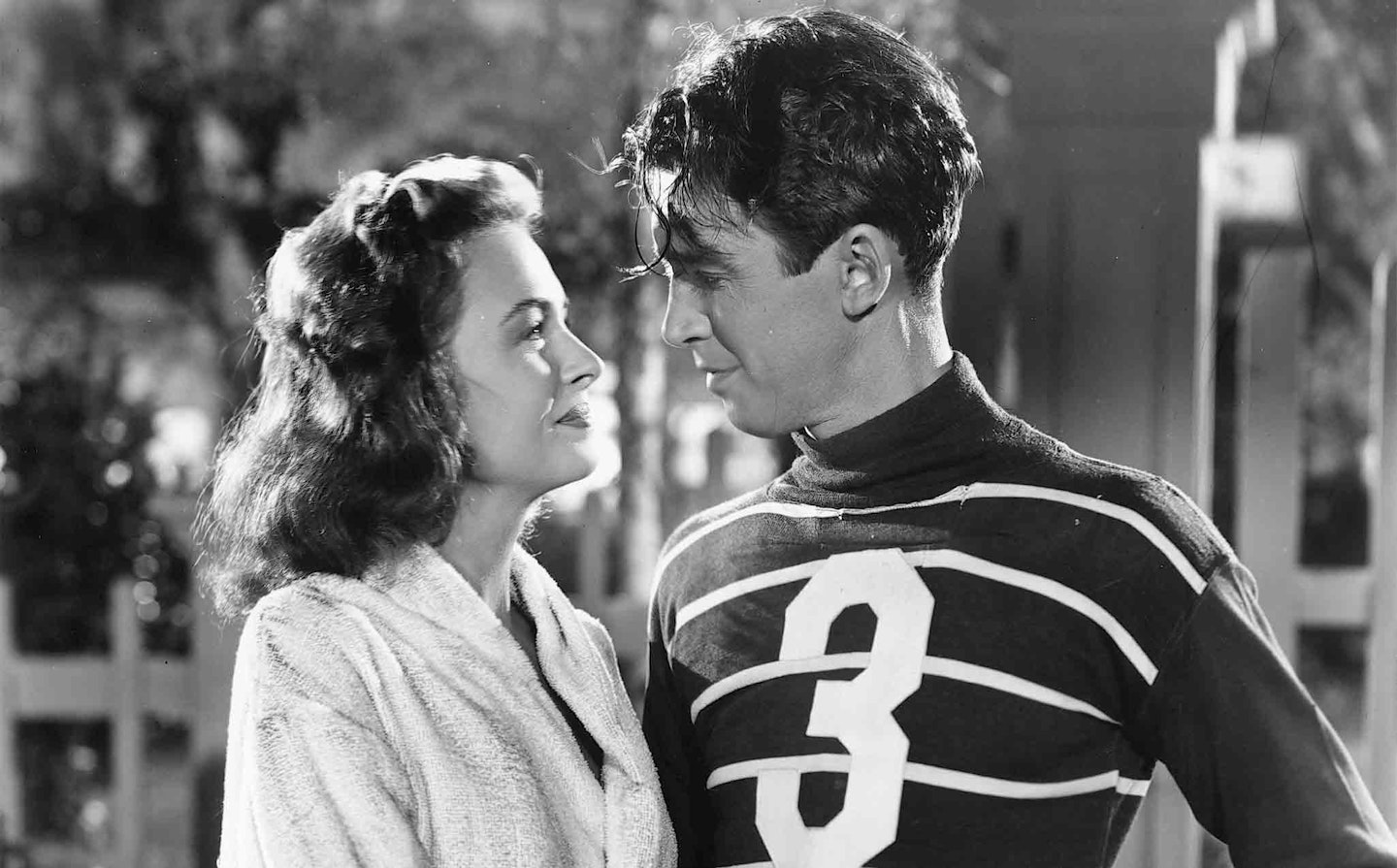
But when the war was over, Capra was yesterday's man, and being Capra-esque was out of vogue. Egotistical, embittered, cynical and used to autonomy, Capra went independent, founding Liberty Pictures. (And he wasn't the only one suffering post-War angst. Returned bomber pilot Jimmy Stewart was haunted by his experiences, no longer in demand and thinking of giving up acting altogether — until he had his own epiphany when Capra persuaded him to play George Bailey, and Lionel Barrymore, cast as Bailey's ruthless nemesis, the banker Mr. Potter, gave him a pep talk about what a valuable contribution to society an actor can make.) Feeling an affinity with its darker aspects, Capra bought It's A Wonderful Life from RKO, hired his own writers and financed the production at the Bank Of America.
It's the ultimate cult comeback movie.
His old friend and rival William Wyler scored a triumphant comeback with The Best Years Of Our Lives (1946), which began filming the same day as It's A Wonderful Life and completely overshadowed it by perfectly capturing the country's mood. It was not until Capra's oeuvre was rediscovered in the '70s, as a lapsed copyright bargain package for TV syndication, that his message movies were embraced again by audiences for their charm and traditional values.
Oddly, even liberal fans persist in not acknowledging that Capra's films are full of the contradictions (some say hypocrisy) that marked his complex, conflicted personality and politics. A conservative Republican, Capra fancied himself one of the wealthy and powerful elite while boasting a populism that engaged Depression-era audiences. And he begrudged credit to his most valuable collaborators, particularly those known for being to the left politically, and unhesitatingly distanced himself from them when they all came under sinister, Red-scare scrutiny.
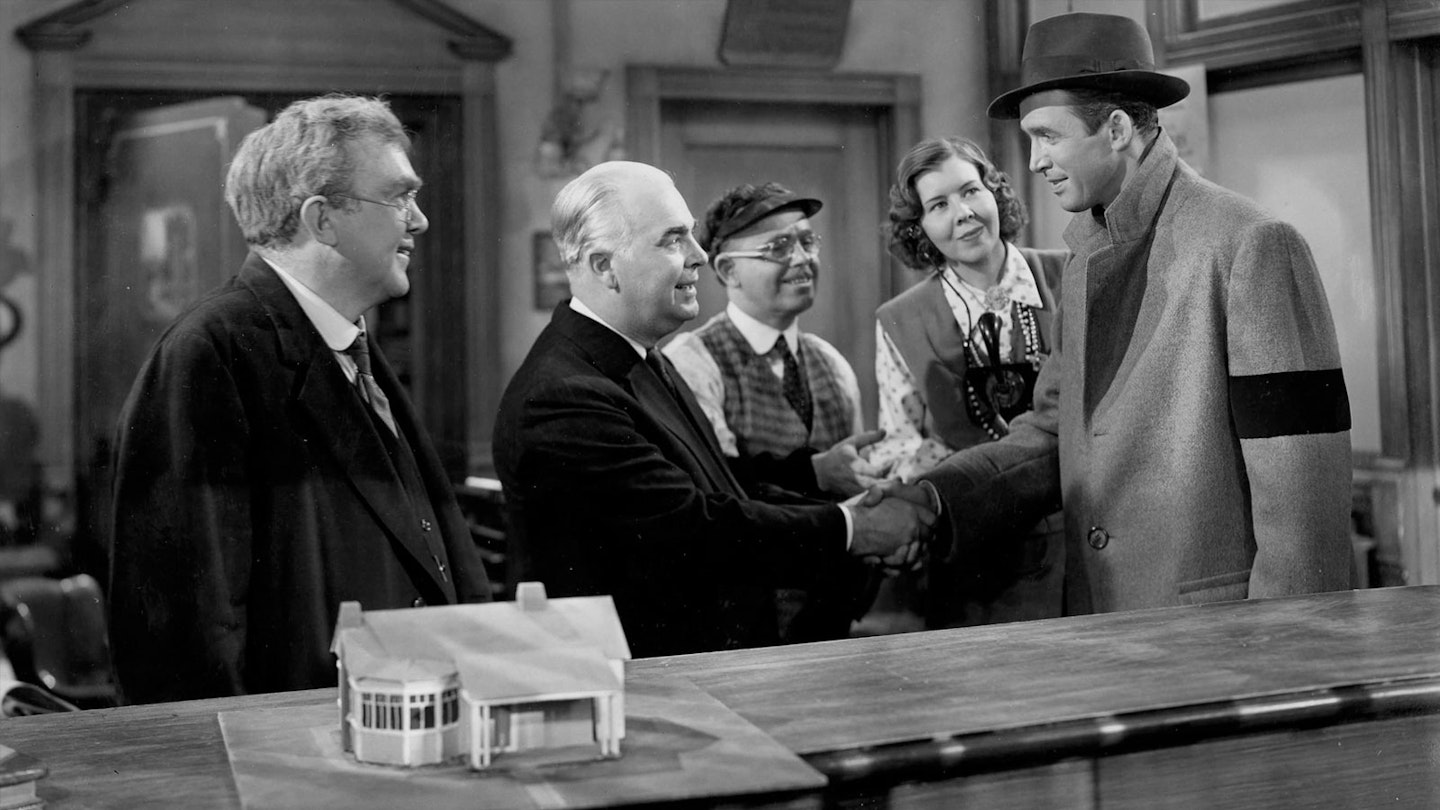
These contradictions are encapsulated in his work. In Mr. Deeds Goes To Town, hard-nosed reporter Jean Arthur mocks naive poet Gary Cooper, who inherits a fortune and is beset by grasping city slickers. His decision to give it all away sees him in a court battle to determine his sanity, but goodness, empathy and love win out. It was released to acclaim in the USSR, retitled Grip Of The Dollar. In Mr. Smith Goes To Washington, hard-nosed secretary Jean Arthur mocks naive new Senator James Stewart, who is framed for misconduct by a corrupt political machine—but goodness, democracy and love win out. In Meet John Doe, hard-nosed reporter Barbara Stanwyck invents a ficticious Everyman and hires naive Coop to impersonate him. The national movement his folksy philosophy inspires is manipulated by a fascist, but goodness, the little man and love win out.
It goes darker at points, but balances that with the twinkly light.
It's A Wonderful Life stands out, though, by going darker at points, yet better balancing that with the twinkly light. Despite the film being loved as an uplifting fable, many don't see that Capra's small-town Americana was a reactionary illusion, idealising a disturbingly cosy way of life that never was. George's nightmarish odyssey through Pottersville and a community that doesn't know him — what the filmmakers dubbed "the unborn sequence" — is strikingly noir cinema, gloomy and disillusioned. And the events leading up to George's suicide bid bring out his selfish, abusive side — realistically the inevitable explosion of a man whose personal dreams and ambitions have been continually suppressed and thwarted by the needs and demands of others.
The true magic of the film is that Capra's undeniably vital creative genius, with the help of his perfect cast, pulls its conflicts and mood swings together, through comedy, sentimentality and despair, into a supremely entertaining homily on simple goodness, forever treasured for the cheer of its insistence that "no man is alone who has friends..."
